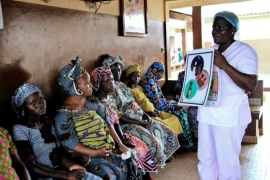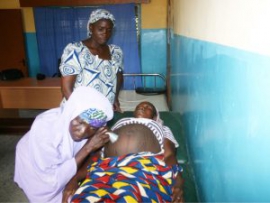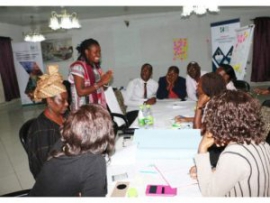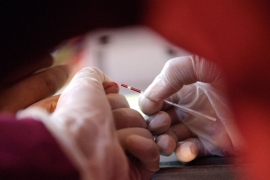Benin clinic battles mother-to-child transmission
Pregnant with her fourth child in a clinic in Benin, Rosine is relieved to learn that she does not have AIDS, after a free test considered a national health priority.
"I was afraid the test would be positive. My husband is a driver, you know," the woman in her 40s told AFP at the maternity clinic in the small town of Bohicon, where she was screened.



















